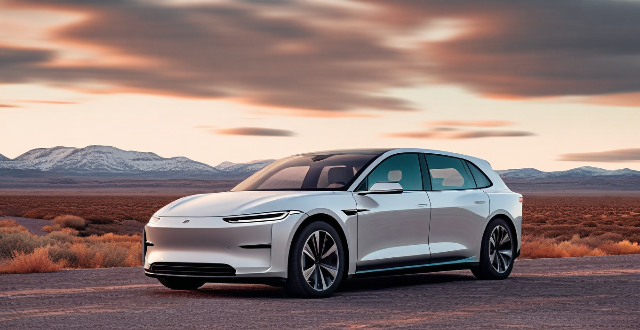The range of an electric car, or the distance it can travel on a single charge, depends on factors such as battery size, driving conditions, and energy efficiency. Larger batteries generally provide longer ranges, but they also increase weight and cost. Driving at high speeds, in cold weather, or uphill can reduce range, while efficient powertrain systems use less energy for propulsion. The average range of electric cars is increasing over time, with many offering between 150-300 miles per charge under ideal conditions. Some high-end models boast even greater ranges, exceeding 400 miles on a single charge.

What is the Range of an Electric Car?
The range of an electric car, also known as its driving range or distance per charge, refers to the maximum distance that a fully charged electric vehicle (EV) can travel before needing to be recharged. The range varies depending on several factors, including battery size, driving conditions, and energy efficiency.
Factors Affecting Range
- Battery Size: Larger batteries generally provide longer ranges because they store more energy. However, larger batteries also increase the weight and cost of the vehicle.
- Driving Conditions: Driving at high speeds, in cold weather, or uphill can significantly reduce the range of an electric car. Additionally, frequent acceleration and braking can decrease range due to increased energy consumption.
- Energy Efficiency: The overall efficiency of the electric car's powertrain, including the motor, controller, and other components, affects how far it can travel on a single charge. More efficient systems use less energy for propulsion, resulting in longer ranges.
- Vehicle Weight: Heavier vehicles require more energy to move, which can reduce their range compared to lighter vehicles.
- Tire Inflation: Properly inflated tires reduce rolling resistance, improving efficiency and extending range.
- Air Resistance: Aerodynamic design helps minimize air resistance, allowing electric cars to maintain higher speeds with less energy consumption and increasing their range.
Average Range of Electric Cars
The average range of electric cars has been increasing over time as technology improves and battery capacities grow. Currently, many electric cars offer ranges between 150-300 miles per charge under ideal conditions. Some high-end models boast even greater ranges, exceeding 400 miles on a single charge.
Example Ranges by Model
Here are some example ranges for popular electric car models:
- Tesla Model S Long Range: Up to 402 miles
- Chevrolet Bolt EV: Up to 259 miles
- Nissan Leaf Plus: Up to 226 miles
- Hyundai Kona Electric: Up to 258 miles
- Ford Mustang Mach-E California Route 1 Edition: Up to 300 miles
It's important to note that these numbers represent estimates under optimal conditions and may vary based on individual driving habits and environmental factors. Manufacturers often provide multiple range estimates for different types of driving scenarios (e.g., city vs. highway).
In conclusion, the range of an electric car depends on numerous variables, but advancements in technology continue to push the limits further each year. As battery technologies improve and charging infrastructure expands, we can expect electric cars to become even more capable and convenient for everyday use.